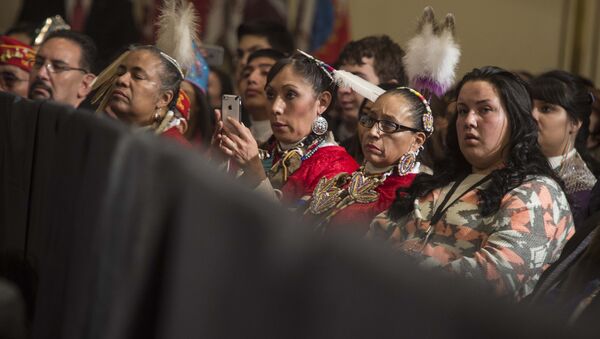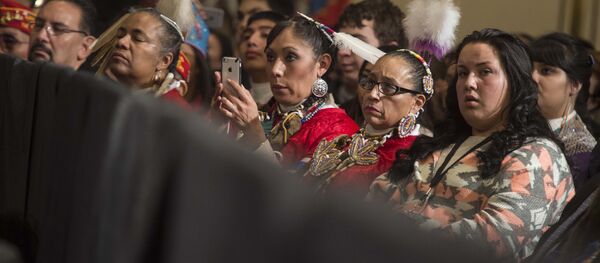"I know this current administration is anti-Indian," the liaison Mathew Tomaskin said. "We are even talking about termination … Part of that is due to funding, they are not going to fund a lot of programs. And basically, you see the actions and the activities against tribes and our sovereignty."
READ MORE: Native Americans Induct First Dozen Indigenous Hall of Famers
When asked what would happen if the treaty is terminated, Tomaskin explained that the process of ending the treaty would be long and slow, stressing that the treaty was signed in 1855, and the US has been "slowly eroding that little by little."
"All tribes are being affected by his [Trump’s] negative posturing against tribes… So, basically, we would cease to exist as an organized tribe," he added.
READ MORE: Native American Youth on the Brink of Losing Tribe Traditions at US Reservations
Tomaskin also noted that former President Barack Obama during his eight years in office met with tribal leaders every year.
"Not only was he visiting with the tribal leaders, he was also visiting with the youth," Tomaskin said. "This is the second year for this administration. Last year, we didn’t have a tribal leaders’ meeting."
Earlier in the week, the National Congress of American Indians President Jefferson Keel told Sputnik that representatives of Native American tribes have not yet met with Trump, but are optimistic that such a meeting will take place in the near future.
Tomaskin also said that he has been encouraging members of his tribe to vote in both US state and federal elections.
"If we can encourage people to vote, we’ll have people who work for us on a policy level side whereas at the state legislature or in the federal government — working to ensure our existence, through funding, through education and through the promises that were made in the treaties," he said.
As of January 2018, the US federal government recognizes 573 Indian nations, including 229 in Alaska. Native American tribes are further recognized by their respective state governments, according to the NCAI.
Established in 1944, the National Congress of American Indians is the oldest and largest non-profit organization representing US native tribes and the interests of tribal governments and communities.



